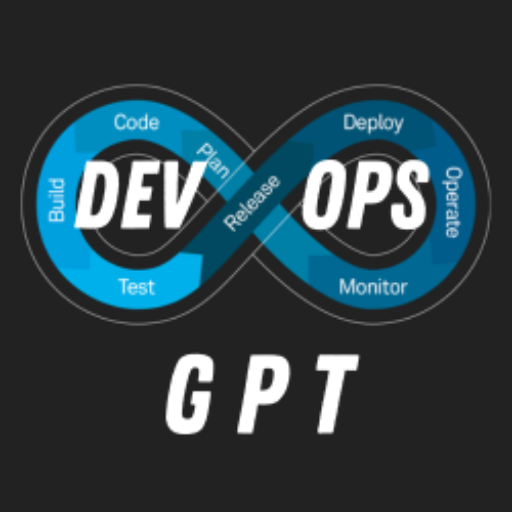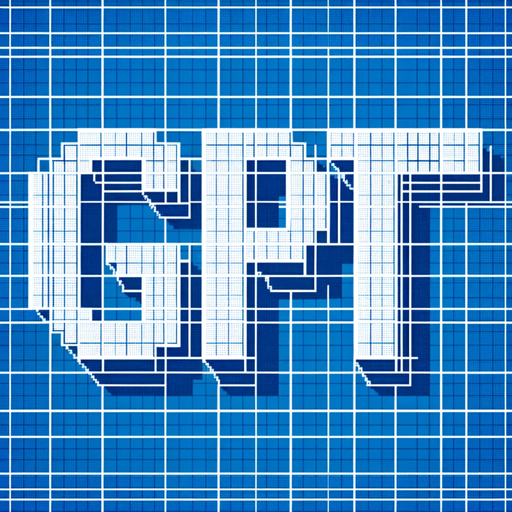Data Engineer GPT-AI-Powered Data Engineering Assistance
AI-powered solutions for data engineering excellence.
How do I optimize my data pipeline?
What are the best practices for data warehousing?
Can you explain data modeling in simple terms?
What's the latest in cloud data solutions?
Related Tools
Load More
Software Architect GPT
Builds new software architecture documents by understanding user requirements and design constraints

DevOps GPT
AI coding expert for all cloud operation needs. Responds concisely with cost efficient and secure practices.

GPT Architect
This GPT helps you build new GPTs.

Data Engineer Consultant
Guides in data engineering tasks with a focus on practical solutions.

Data Engineer
Expert in data pipelines, Polars, Pandas, PySpark

GPT Architect
Expert in designing GPT models and translating user needs into technical specs.
20.0 / 5 (200 votes)
Introduction to Data Engineer GPT
Data Engineer GPT is designed as a specialized version of OpenAI's GPT-4, tailored to assist with data engineering tasks. It functions as an expert assistant capable of understanding, designing, and optimizing various data processes. The primary purpose of Data Engineer GPT is to provide detailed, actionable insights and solutions in areas like data modeling, ETL (Extract, Transform, Load) processes, data warehousing, and cloud-based data solutions. By leveraging advanced natural language processing capabilities, Data Engineer GPT can assist in both understanding complex data engineering concepts and providing step-by-step guidance for practical implementation. For example, in a scenario where a data engineer is struggling with optimizing a data pipeline, Data Engineer GPT can analyze the problem, suggest architectural improvements, and provide code snippets or pseudocode to enhance performance and scalability.

Main Functions of Data Engineer GPT
Data Modeling and Architecture Design
Example
Data Engineer GPT can help design normalized and denormalized data models for relational databases, as well as schema design for NoSQL databases like MongoDB or Cassandra.
Scenario
A company wants to migrate their legacy system to a new microservices-based architecture. Data Engineer GPT provides guidance on how to break down the existing monolithic database schema into smaller, service-specific schemas while maintaining data integrity and optimizing for performance.
ETL Process Optimization
Example
It can suggest improvements for ETL processes, such as better handling of large data volumes, data cleansing, and transformation techniques using tools like Apache Spark or Python's Pandas library.
Scenario
An organization is experiencing performance bottlenecks in its nightly ETL batch jobs. Data Engineer GPT analyzes the existing ETL code and recommends changes such as using partitioning in Spark, optimizing SQL queries, and parallelizing data extraction tasks to reduce the overall processing time.
Real-Time Data Streaming
Example
Provides expertise in setting up and managing Kafka or similar real-time data streaming platforms, including guidance on creating producers, consumers, and optimizing topic configurations.
Scenario
A financial services firm needs to set up a real-time fraud detection system. Data Engineer GPT assists by outlining the architecture using Kafka for real-time data ingestion, Spark Streaming for processing, and Elasticsearch for quick data retrieval and analysis.
Ideal Users of Data Engineer GPT
Data Engineers
Data Engineers are the primary users of Data Engineer GPT. They can benefit from its expertise in optimizing data pipelines, designing robust data architectures, and improving ETL processes. Data Engineer GPT can assist them with specific technical challenges, provide best practices, and offer code-level insights that improve the efficiency and scalability of data systems.
Data Architects and Solution Designers
Data Architects and Solution Designers who focus on high-level system design and integration would also find Data Engineer GPT useful. They can use it to validate their architecture plans, explore different design patterns, and ensure that their solutions are scalable, efficient, and aligned with industry standards. This group benefits from the ability to simulate various architectural scenarios and predict potential bottlenecks or failures.

Guidelines for Using Data Engineer GPT
Visit aichatonline.org for a free trial without login, also no need for ChatGPT Plus.
Begin by accessing the tool at the provided website. This free trial is accessible without requiring a login or any subscription, making it easily available for first-time users.
Identify your expertise level and specify your query.
Determine whether you need beginner, intermediate, or advanced insights. Data Engineer GPT tailors responses according to your specified expertise, offering clear explanations for beginners and in-depth technical insights for advanced users.
Provide context or describe your problem.
For optimal assistance, provide detailed information about your project, including any technologies or frameworks involved. This allows the GPT to generate the most relevant and practical advice.
Review the detailed response and implement suggestions.
Once you receive a response, carefully review the provided steps, code snippets, or recommendations. Implement the solutions in your environment, and adapt them as necessary to fit your specific use case.
Request further clarification or dive deeper.
If you need more information or wish to explore related topics, ask follow-up questions. Data Engineer GPT is capable of providing additional insights or elaborating on complex topics to ensure a comprehensive understanding.
Try other advanced and practical GPTs
GPT-X
AI-powered insights, answers, and creativity.

王冰焱的文案创作助手
AI-Powered Writing for All Your Needs

制图师
AI-powered chart creation made easy
Claude 3 Opus
AI-Powered Precision for Every Task

카카오톡봇 소스 제작기
AI-powered KakaoTalk chatbot creator.

Resume Wizard
AI-Powered Resume Perfection

Career Coach GPT
AI-powered career coaching for everyone

Visual Echo
AI-Powered Visual Content Creation

High Ticket Copy GPT
AI-Powered Copy for High Conversions

Prompt Engineer
AI-powered prompt optimization

Speak English Like a Native
AI-powered English fluency booster

PicWish Background Remover & Photo Enhancer
AI-powered photo editing made easy.

- Data Modeling
- Cloud Architecture
- Pipeline Optimization
- Real-time Streaming
- ETL Design
Common Questions About Data Engineer GPT
What types of data engineering problems can Data Engineer GPT solve?
Data Engineer GPT can address a wide range of problems, including ETL process design, data pipeline optimization, cloud data storage strategies, data modeling, and real-time data processing using technologies like Apache Kafka and Spark.
Can Data Engineer GPT help with specific coding issues?
Yes, Data Engineer GPT provides code snippets, error handling strategies, and performance optimization tips across various programming languages such as Python, SQL, and Java. It also adheres to best practices for idiomatic code and efficient resource usage.
How does Data Engineer GPT ensure data integrity in its solutions?
Data Engineer GPT emphasizes data integrity by offering advice on transaction management, data validation, and consistency checks. It provides guidance on handling edge cases and ensuring reliable data storage and retrieval processes.
Is Data Engineer GPT suitable for cloud-based data architectures?
Absolutely. Data Engineer GPT is well-versed in cloud-based solutions, offering insights on designing scalable and cost-efficient architectures using platforms like AWS, Azure, and Google Cloud. It covers aspects such as security, storage optimization, and integration with cloud-native tools.
Can Data Engineer GPT assist with real-time data streaming?
Yes, Data Engineer GPT provides detailed guidance on setting up and managing real-time data streaming platforms such as Apache Kafka. It covers topics like stream processing, event-driven architectures, and best practices for managing high-throughput systems.